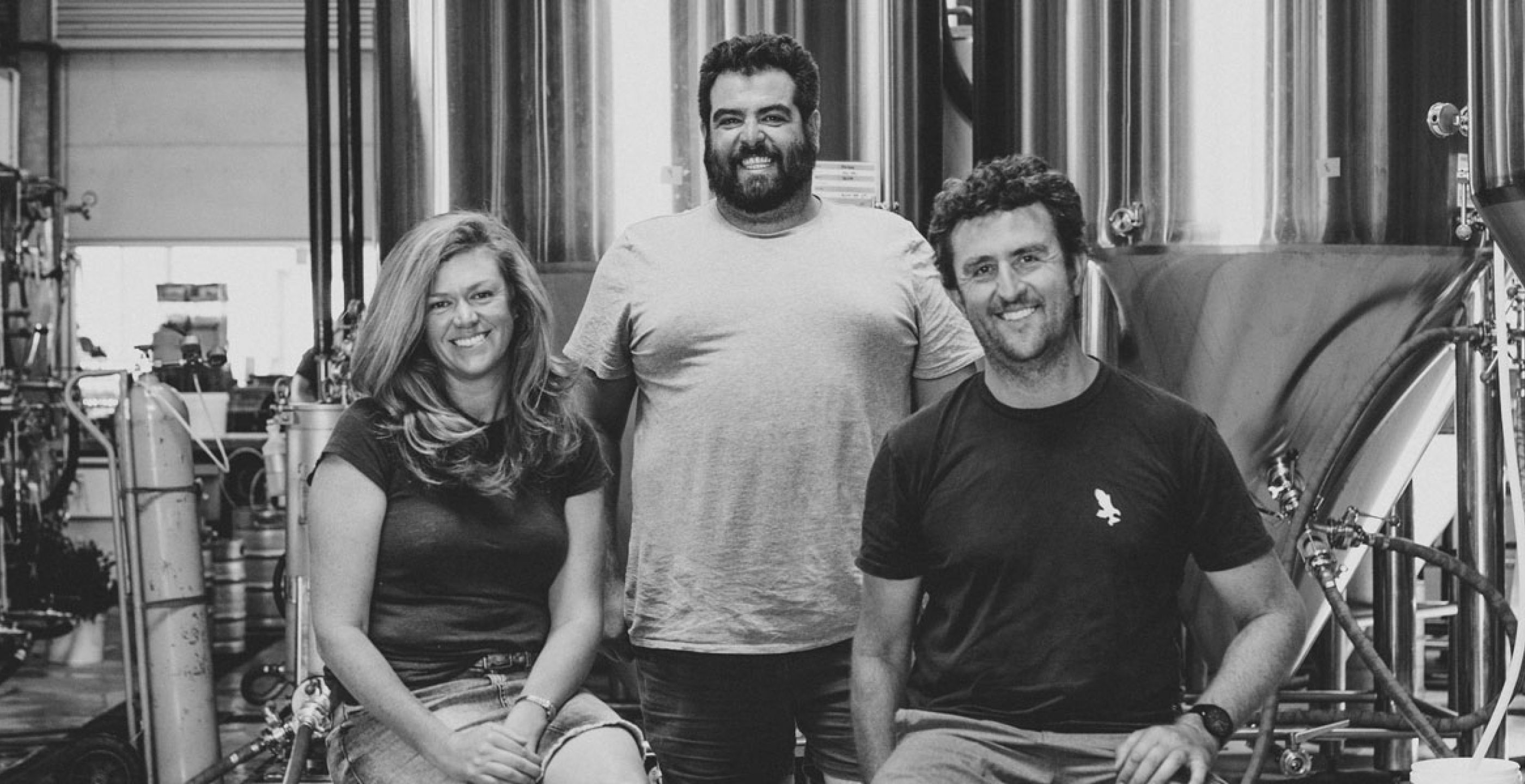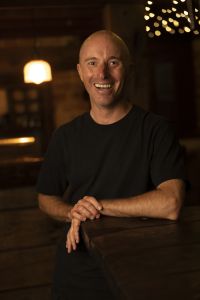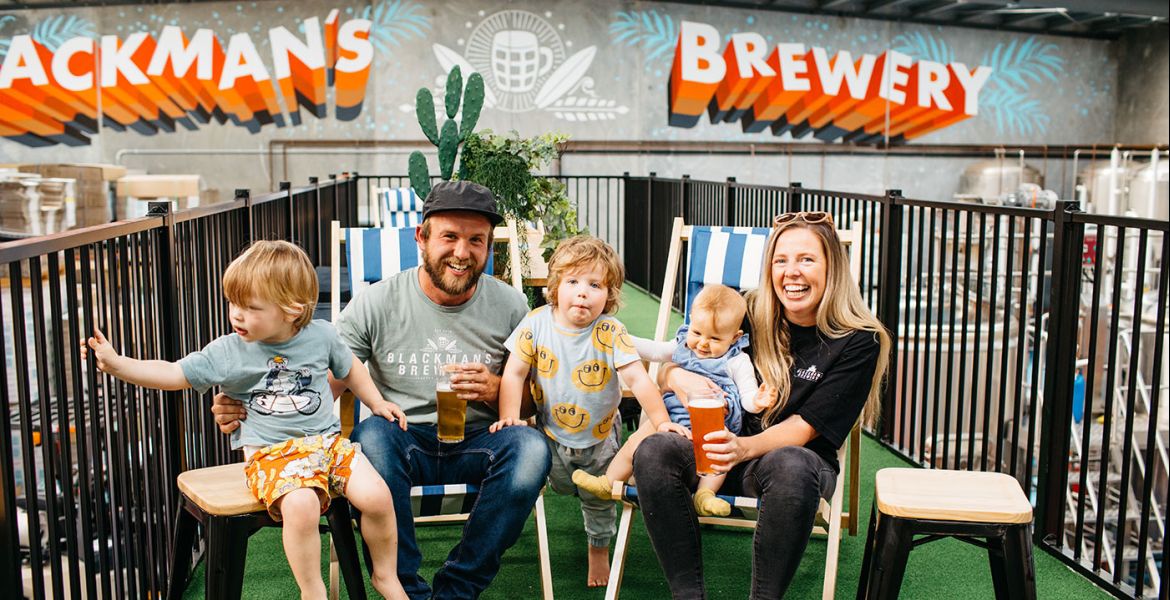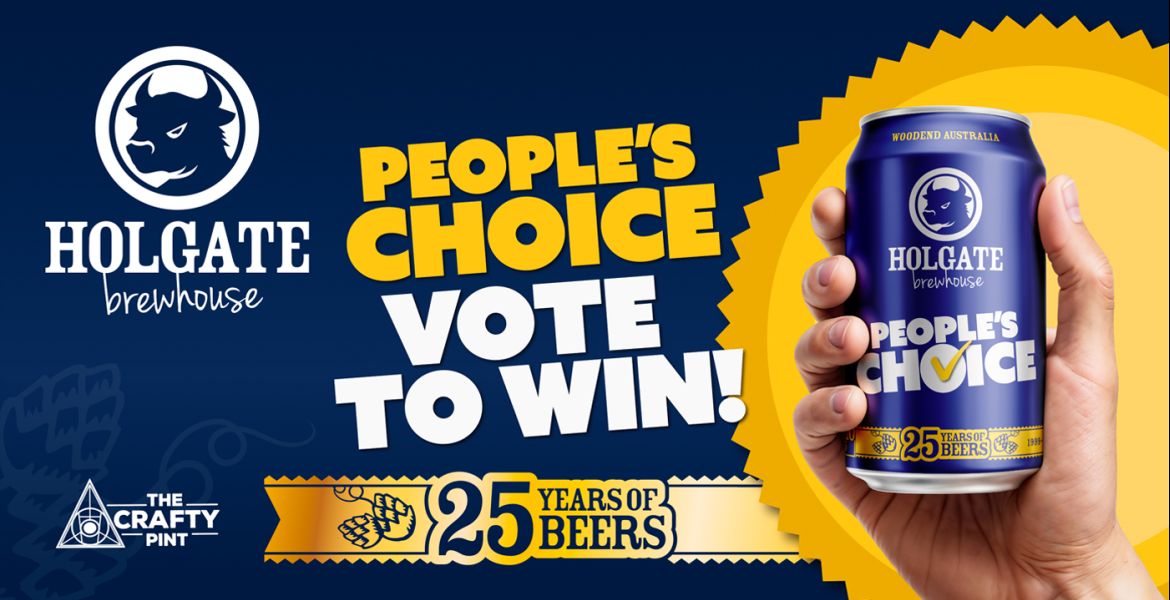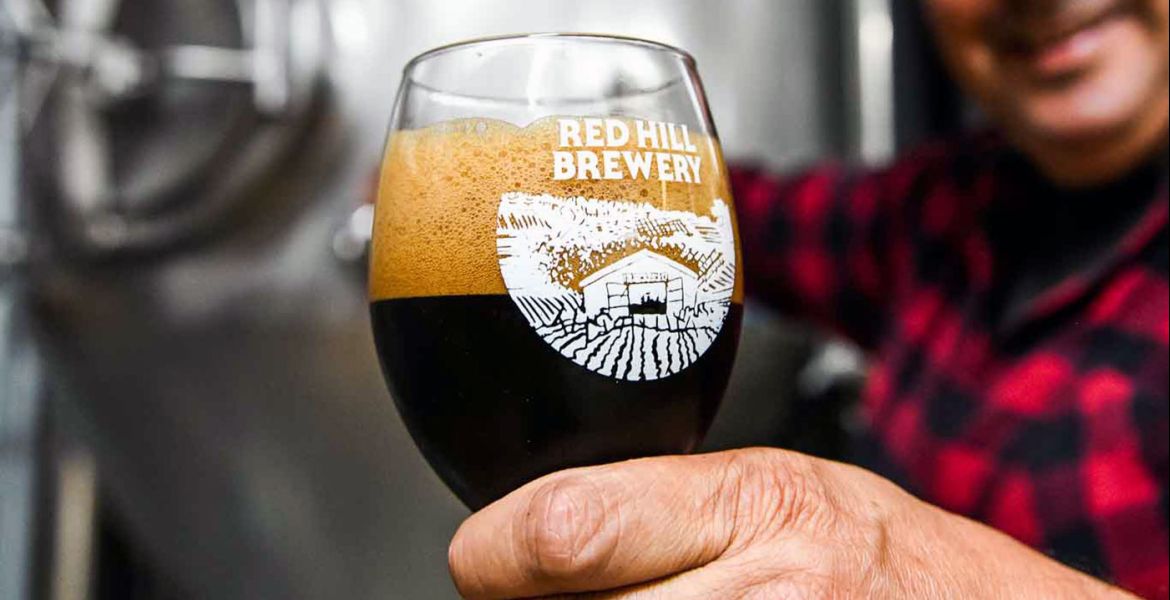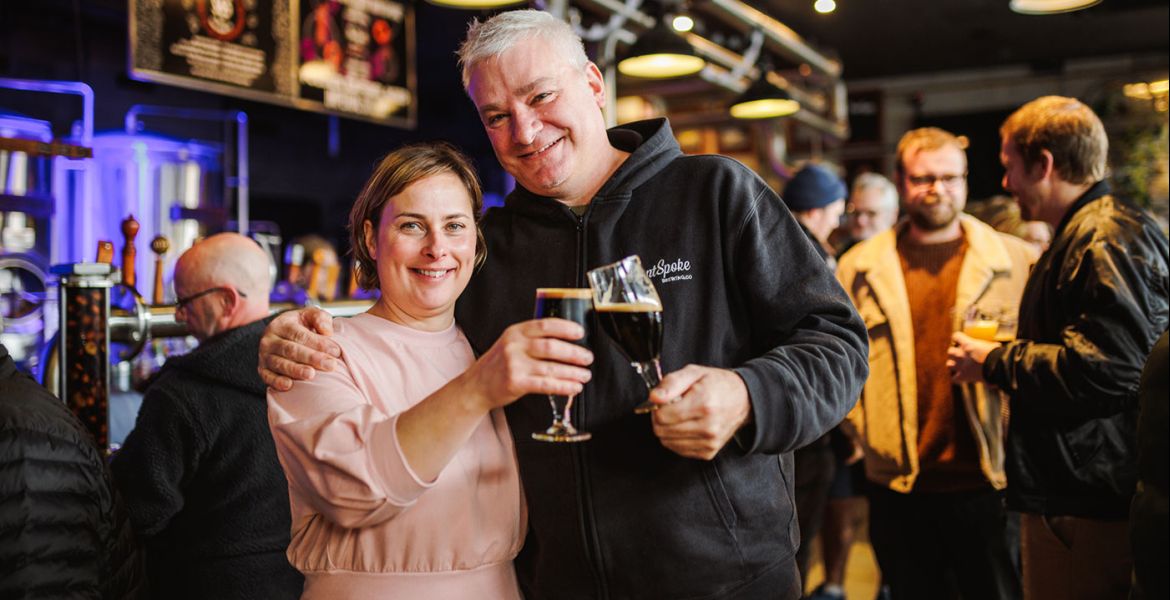For a brewery that’s been around for a decade, there’s very little written about Eagle Bay, at least in comparison to some of their WA peers, including those with far fewer miles on the clock.
As they mark a decade since pouring their first beer, Guy Southern joined founders owners Astrid, Nick and Adrian d'Espeissis, AKA Edge, at Astrid’s home to reflect upon the Eagle Bay story to date. It’s the story of one man’s fishing trip, the prescience of his son, and a farm gate, which also happens to involve a few beers.
Eagle Bay’s fantasy postcode invites a dreamy, slow life of dips in turquoise bays clad with ancient rock, a national park, and #gramable content, but this wasn’t always the case. Despite its stunning beauty, the Cape Naturaliste area remained largely untouched until the region’s wine boom of the 1980s. Indeed, when the d’Espeissis grandfather Jean made a trip to the area in the late 1940s, it was on a gravel track from Busselton, more than 30 kilometres away.
Now a mere seven minutes on black top from Dunsborough breezes past, ferrying many to Meelup Beach, the lighthouse and, of course, Eagle Bay. It’s a trip the siblings have made their entire lives: Nick and Astrid (above right and left) grew up on the family farm; when Edge (above centre) arrived, they moved into town.
Two generations prior, Jean was involved in setting up the Department of Agriculture for the West Australian Government, had a vineyard in the Swan Valley, and moved around the State’s South West looking for a place to settle.
“He inherited some money and decided to buy a farm," Astrid says. "He was looking around Boyanup and, in 1949, he was invited to go fishing at Bunker Bay. On the way back, he saw a light on and went into a farmhouse and asked if anything was for sale.”
It was, and soon grandfather d’Espeissis had purchased a couple of small farms, originally farming dairy before switching to beef, cattle and sheep; it's a practice that continues today, with vines added as well. But it was hard graft, with no electricity or modern comforts, as Astrid explains.
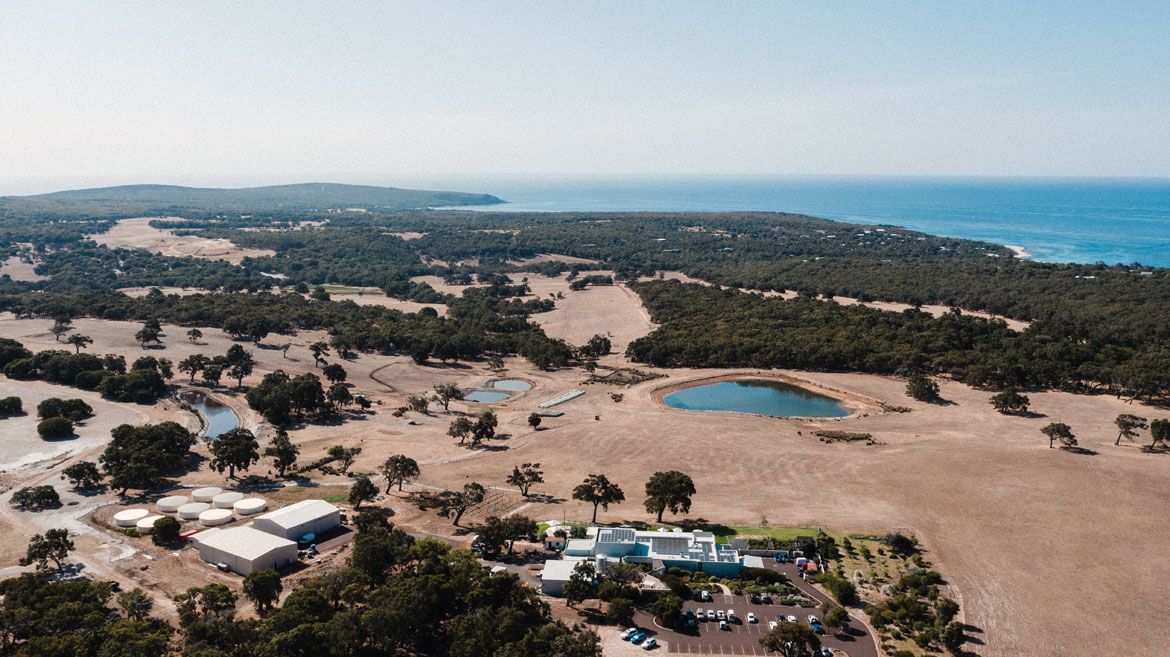
“It was very rudimentary out there at that time," she says. "Very basic living. They were supporting families out there who worked on the farm.”
That included the siblings' father John, who grew up on, and eventually took over, the farm. A lifetime farming provided him with a hard-earned, pragmatic vision which eventually resulted in the business the kids run today.
“Over our Dad’s lifetime, he saw that the value of primary products relative to the value of money was declining," Astrid says. "He used to measure it to how many bales of wool it took to buy the average model Ford of the day. When he started counting, it was three, and now it’s probably three hundred. The value of primary products has decreased relative to money, or what you can buy with money.
“With the wool crash of 1987, he said to us when we were still at school, and particularly to the boys, ‘None of you will be farmers. You won’t take the easy route and go surfing all the time. You need to go off and learn another trade, or another skill, whether that’s university or whatever, because the farm is not able to support this decline.’
"He could just see that the farm was not going to be able to support families into the future."
His long view continued, coalescing in the mid-2000s into the idea that became Eagle Bay Brewing Co.
“When Dad turned 60, he said, ‘What are we going to do with the farm?’," Astrid says. "At this point, we’d all been to university, Nick was already brewing, and we all said, ‘I dunno?’ and that’s when really the idea of, ‘Wouldn’t it be great if we had a brewery?’ happened, but didn’t get any further than a bit of a chat over a bottle of red.
“No pen was put to paper, but we needed to do something about the farm and the answer is not wool, beef, sheep, grapes, so this idea of the brewery got a bit of traction. And it was a bit of a wild idea at the time: creating a brewery on a family farm which was third generation. It was an experiment really. We really didn’t know if anyone would come.”
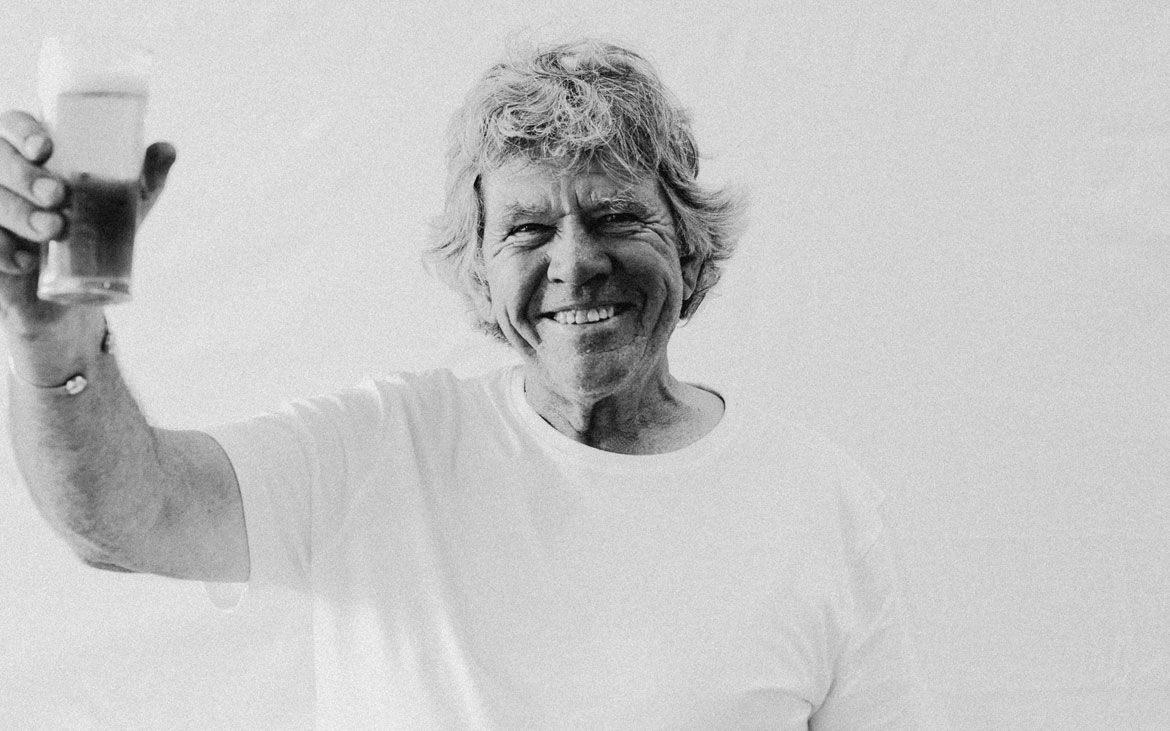
At the same time, the recently-opened Pullman Bunker Bay Resort began drawing tourists past the farm, which provided a unique measure of confidence for the d’Espeissis family.
“When we were kids, people would drive to the Meelup Beach turnoff and that’s as far as they would go, and they’d go back," Astrid recalls. "Eagle Bay was not a thing. Bunker Bay was definitely not a thing."
Edge adds: “If we wanted to move cows, I’d open the gate, walk them down the road and open the next gate, and let them in.”
“And maybe one car would come along," Astrid says, "and it would be a surfer and they’d be cool with waiting. And then, after the Bunker Bay Resort was built, we noticed that there’d be seven cars waiting.”
Edge again: “And now we move them straight across the road, and then inside the property, rather than down the road, and just to do that you’ll have five cars stopped each way, and that’s a one-minute operation.”
“We did feel that there was more interest in this part of the Cape by moving sheep across the road," Astrid says. "When we were growing up, you never had to worry about the time of day you moved sheep, or the time of year you moved sheep.”
Over the period from 2007 to 2010, the brewery moved from a ‘What if?’ notion to a very real, eleven-month construction, which took place partly through the Global Financial Crisis; however, Edge notes that today’s manifestation far exceeds the humble concept.
“The original idea was that Nick would make the beer, I would run front of house, and we’d just maybe do some platters, maybe the size of living room," he says. "As we started to draw it, the architect said, ‘Do you want to potentially do weddings there?’ and we said that we’d like to fit maybe 120 people in, and the next thing you know the kitchen got bigger, the restaurant got bigger, and we’ve ended up with the beast that we’ve got today – that takes 60 people in summer people to run it.
“By the time we’d built it, we thought if we can do a hundred people on the weekend that will be amazing, and the odd wedding. Now, on a busy summer’s day, we do six hundred main meals and there’s probably a thousand people through the doors. We knew it was going to work, but we had no idea about the scale of the thing, I guess.”
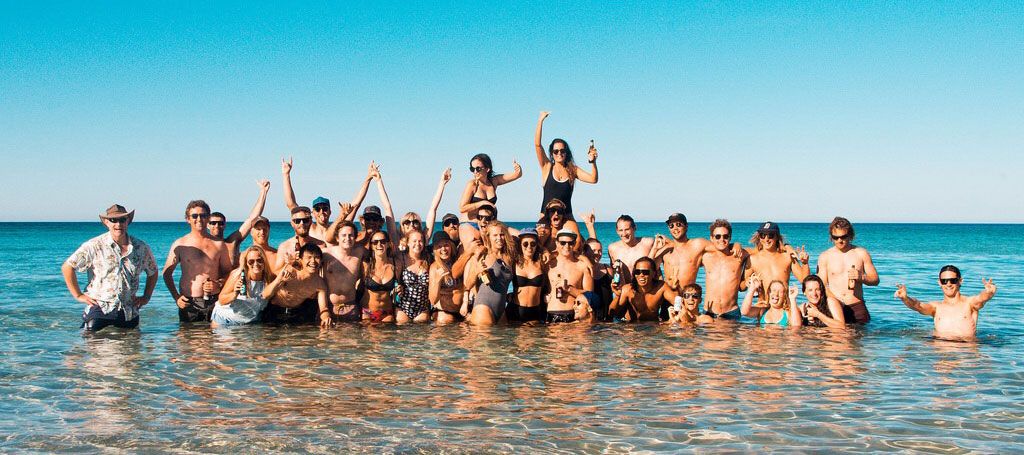
Scale aside, the relaxed, family-friendly brewery venue concept itself was ground-breaking for the region at the time.
“Restaurants in the Margaret River wine region were skewed towards baby boomers and empty nesters, and they were a bit fancy," Astrid says. "It was almost as if you took a child to Vasse or Leeuwin or one of those wineries, people would look at you like, ‘What is that doing here?’."
Edge recalls: “I worked at Clairault Winery and we did fine dining. And you’d see people once a year on an anniversary or a birthday. At the time, it was either Vasse Felix or the bakery. Relaxed dining with table service wasn’t being done in the South West."
Not that Eagle Bay’s high-end neighbours didn't come with advantages.
“The brewery kitchen is loosely based off the Clairault kitchen because I was running the cellar door in winter and there was no one there, so I was running around with a tape measure,” Edge admits.
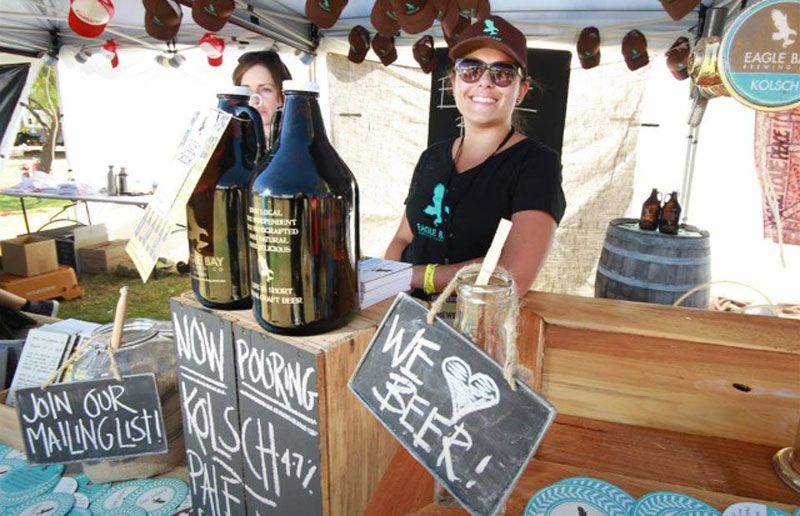
Opening a brewery, by its very nature, requires beer, something with which Nick was very familiar with. After completing an accountancy degree on his father’s guidance – “Desks and me don’t mix,” he says now – it was a gift for John which kick-started his interest in beer.
“I bought Dad a homebrew kit for Father’s Day," Nick says. "He made one beer and tipped it out, and then I started with kits.”
This led to the family’s double car garage being filled with homebrew bottles, and eventually study at Edith Cowan University. Once that course was completed, Nick's commercial brewing career began at Dux de Lux in Christchurch, New Zealand, for six months one summer, before conversations with Bill Hoedermaker and Peter Nolin saw him become Gage Roads' first employee on his return in 2004.
After two years at Gage, and then a year of travel, he became 4 Pines' first brewer – the d’Espeissis and 4 Pines-founding Mitchell families went to school together. The experience of this informed the debut Eagle Bay core range, but it was the reality of providing refreshment after a day's hard labour that birthed the brewery icon.
“For me, 4 Pines was my own startup," Nick says. "I designed everything from the ground up. And, prior to that, obviously Gage was a startup as well. So, our beer direction was kind of built around that. And then, during the building process, making beer for builders.”
During construction, Nick would test 50 litre recipes on the tradies, with Kolsch their favourite.
“I’d made a Kolsch at 4 Pines, and the Kolsch I made for us was different, but similar," he says. "It was the builders' beer.”
From these humble origins, Eagle Bay Kolsch now represents more than 40 percent of their beer sales and, just days before the tenth anniversary, had clocked up one million litres of production, even as the rest of the original, maltier core range has changed with the times.
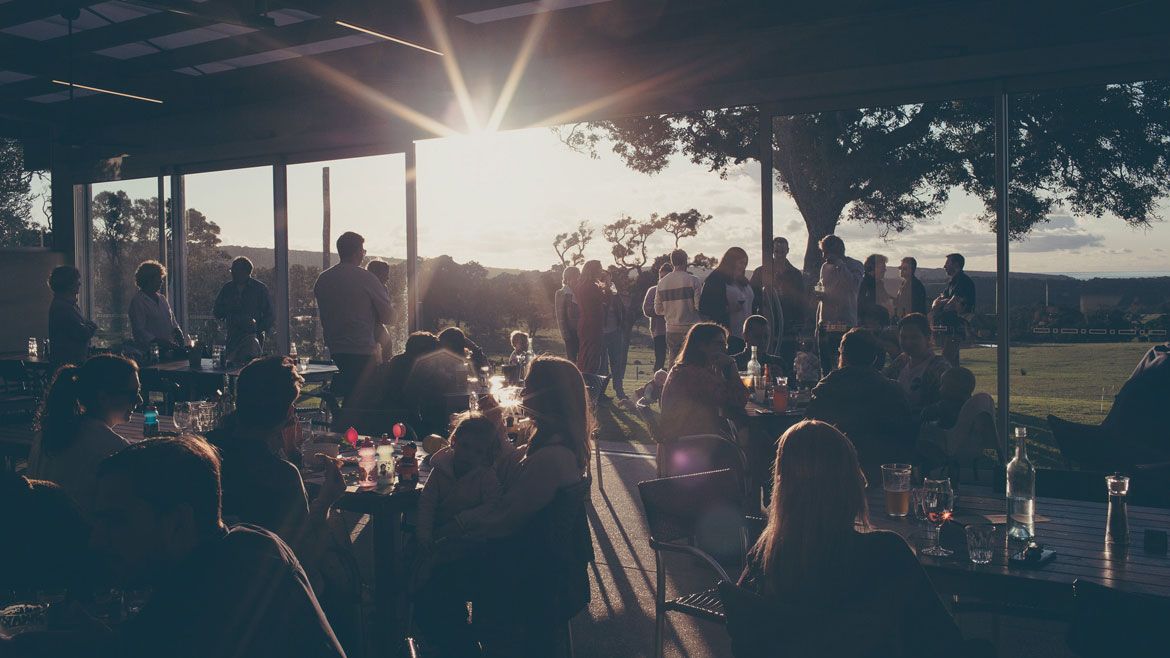
“With the Kolsch, we had the Pale, the ESB, the Mild and a Vienna Lager," Nick says. "And then the evolution of the seasonal. The first one was a steam beer, and now, when we did a hazy at the brewery, staff talk about people just watching it walking across the floor on a tray.”
Although best known for a beer a million miles away from the pointy end of the beer world, Eagle Bay have humbly innovated ahead of the curve. They created one of the first, now ubiquitous, WA collabs with Mane Liquor, the chardonnay barrel-aged Saisonay in 2013, launching an annual, barrel-aged series that has included 2015’s Black & Tannin – a red wine barrel-aged imperial black IPA, and 2018’s Donut Attack, a barrel-aged donut stout.
All of these have been packaged in keg and bottles, with the latter a growing point of difference in an industry dominated by cans, albeit one which is likely to change.
“We aim for drinkability and reliability," Astrid says. "It was a big thing, when we first started; the industry elders were saying, ‘If we can’t produce a quality product, then this industry is going to get tarred with the same brush.’ So, we were really focused from the start on just quality, quality, quality. Don’t put a bad batch of anything out there.
"Quality is something that we’ve always been obsessive about.
“Bottles are a very high quality way of packing beer, and the canning movement in craft has been putting a message out there that it’s better than bottles, but it’s all relative and it all depends on the product you’re putting in, the quality of the equipment that you are using, and your procedures.
"It’s not about bottles versus cans, which oversimplifies the issue. When we go into cans, we’re going into a good canning line, and that’s the difference, but it costs a lot of money to buy a decent quality canning line. Again, it’s about quality.”
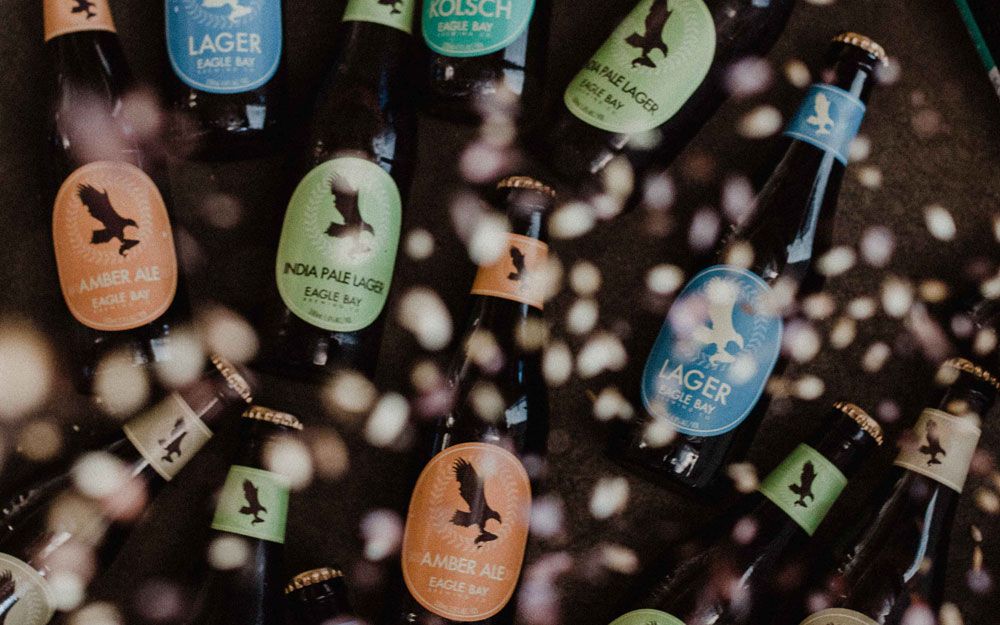
However, a sliding doors moment could well have seen Eagle Bay in cans before now, the irony of which isn’t lost on Edge.
“We were just starting to see American cans coming into the market in 2012, and we talked about going into cans quite a lot at the brewery," he recalls. "We were tossing and turning, and there was one afternoon when I was drinking with about twenty of my mates and said, ‘We’re thinking about putting Eagle Bay in cans', and they all just pissed themselves laughing. They thought I was joking.
"And I thought, ‘OK, the market's not ready.’ So, at that point, we decide to go into bottles. And now they’re all like, ‘Why aren’t you in cans?’."
As for expansion plans, the siblings have taken a classical approach, and one which harks back to their quality mantra.
As Edge says: “In Old World Europe, you drink the beer of the town, or the region. WA is our home, and there’s a big horrible desert in between us and the East Coast. The freshest beer is going to be closer, not further away.
“People think that we’re as big as Little Creatures but we’re a little place down the hill, brewing with rainwater, and solar power.”
“With a very busy thousand litre brew kit," adds his older brother.
“We’re growing every year," Astrid says, "and we haven’t done an IPO, or sought funds from other people. We haven’t said, ‘Let’s buy a massive warehouse and stick another brewery and a canning line in it.’ We’ve said, 'No, we want to do this at a rate we can handle, sustainable growth.' We are a family-owned and run business, and being a community brewer we’d rather make connection here. The venue is our home.
“We’re not looking to sell out. We’re not looking to be bought out or build it up to a point. That’s not our exit strategy. We are a family and we invite our team to be part of the Eagle Bay family. And, as a result, we have a great team of wonderful people.”
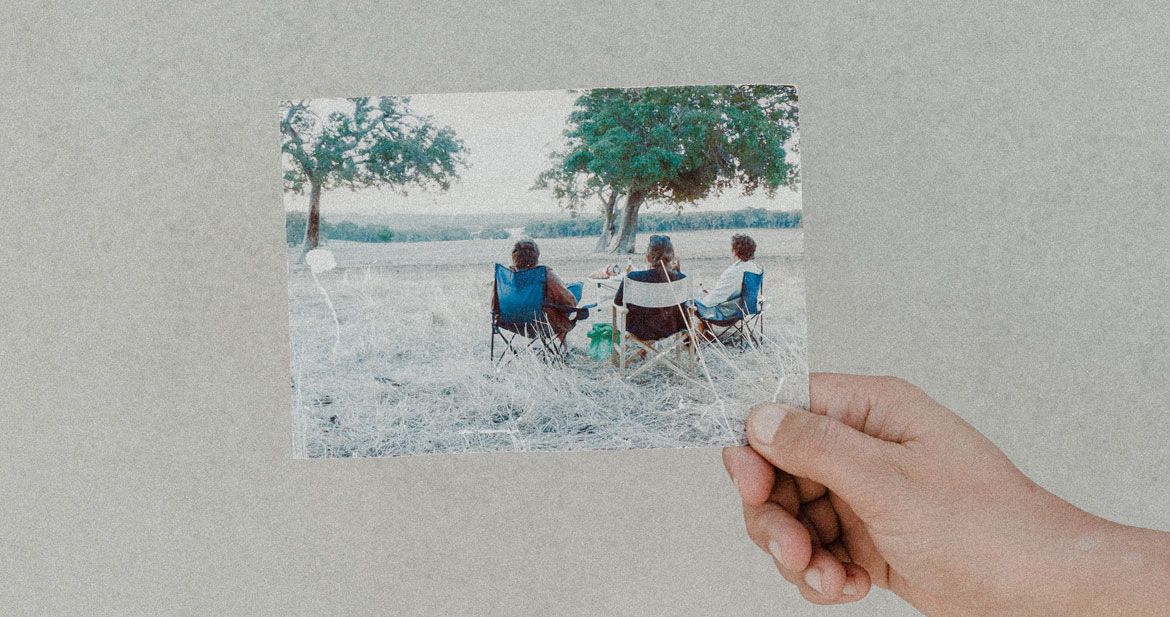
As for their relationship, when asked to sum each other up in a word, Nick, not missing a beat, looks at Astrid: “Stubborn. I used to call her ‘The River’. Never go against the river. Go with the flow and everything is fine. Go against the flow…"
Astrid interrupts, laughing: “You may drown” before Edge adds: “You keep things moving though.”
Nick suggests "Cruisy" for Edge. And, after consideration, Edge posits "The Imaginator" for Astrid.
"It’s not really a word, but that’s what Astrid is. I’m like, ‘Let’s have a year of consolidation' and she’s like, We're going to open a distillery, and next to that is a bakery', and I’m like ‘Who is running these things!?'.”
So what of the original head brewer?
“Nick is quality," Astrid says. "Quality focused. Very practical. He’s great with his hands, and can do anything he sets his mind to. He’ll just grind it out, whatever it is, and he’s obsessed with quality.
"And Edge is warm. He’s a great people person, and people love him. He’s a warm, fuzzy guy. The hair, the beard.”
As for a lifetime of growing up, and building a business together, Astrid’s response clarifies that Eagle Bay Brewing Co is really the manifestation of one man’s fishing trip.
“I think the greater purpose of the brewery goes back to when Dad asked us, ‘What are we going to do with the farm?’," she says.
“Our objective is to keep the farm for our generation and, beyond that, it’s out of our control. We have this stewardship of the farm that we feel is a responsibility, and the brewery enables us to keep the farm.
"The whole reason it works is the location, which goes back to our grandfather going fishing that day. The location of where we are has given us the opportunity to do this, and in return we intend to try to hold that location together.”
In a beautiful piece of unintended serendipity, the first Eagle Bay beers poured a decade ago on the fisherman’s birthday: December 8, 2010. And, each day since, the farm gate continues to open, sometimes for builders, sometimes for travellers, and sometimes for sheep.



